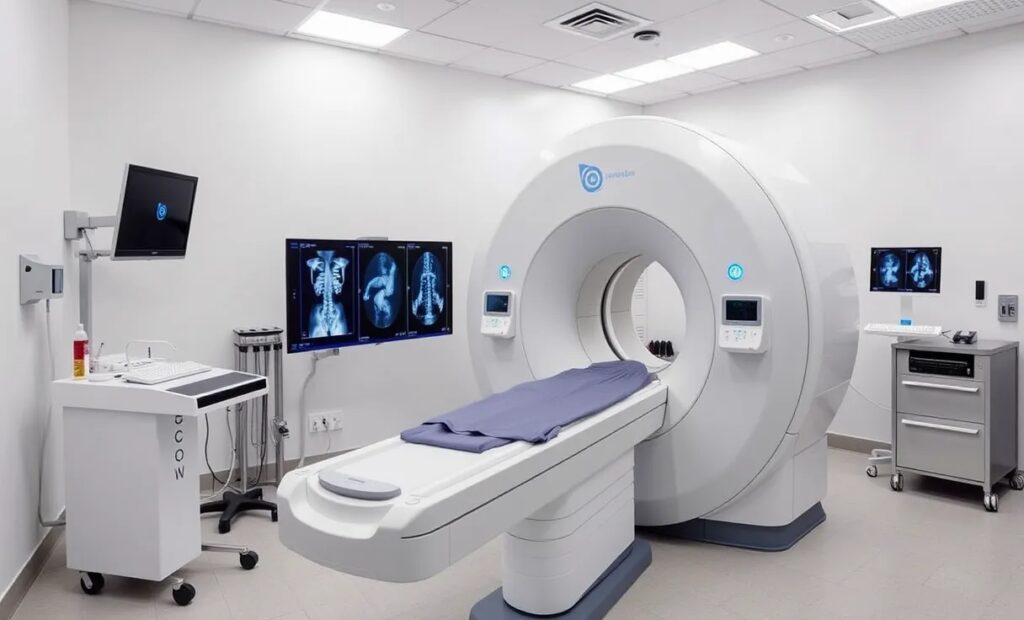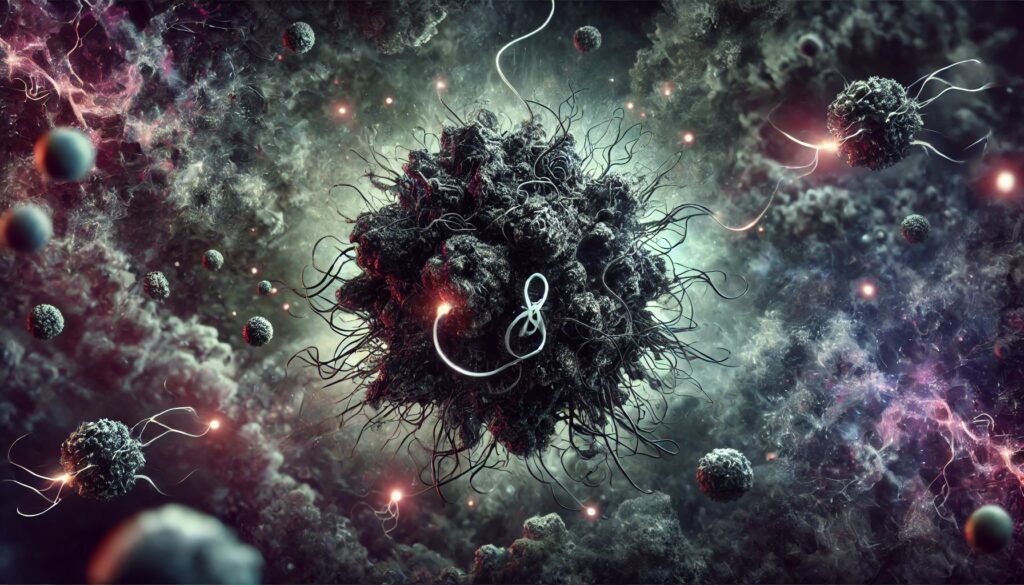
Cancer has long been one of the most formidable challenges in modern medicine. Despite advances in treatment and early detection, the disease remains a leading cause of death worldwide. However, a new frontier in the fight against cancer is emerging: artificial intelligence (AI). By harnessing the power of AI, researchers and clinicians are revolutionizing how we understand, detect, and treat cancer. This technology offers unprecedented precision and insight, providing a beacon of hope for millions of patients around the globe.
The Role of AI in Cancer Detection
Early detection of cancer is crucial, as it often means the difference between life and death. Traditional methods like biopsies, imaging, and blood tests have been the backbone of cancer diagnosis. However, these methods are not infallible. AI is stepping in to fill the gaps, offering a level of precision that was previously unattainable.
AI systems, particularly those based on deep learning algorithms, are capable of analyzing vast amounts of medical imaging data. These systems can detect subtle patterns and anomalies that might be invisible to the human eye. For instance, in the case of breast cancer, AI has been trained to read mammograms with accuracy comparable to, and sometimes surpassing, that of expert radiologists. These AI tools can identify microcalcifications and other early signs of cancer, leading to earlier diagnosis and intervention.
Moreover, AI is being applied to other imaging techniques, such as CT scans and MRIs, to detect lung cancer, prostate cancer, and even brain tumors. By integrating AI into routine screenings, healthcare providers can catch cancers at their earliest stages, significantly improving patient outcomes.
Personalized Treatment Plans: Tailoring Therapy to the Individual
Cancer treatment has never been a one-size-fits-all approach. Each patient’s cancer is unique, influenced by their genetics, lifestyle, and other factors. The rise of precision medicine aims to tailor treatment plans to the individual, and AI is playing a pivotal role in this evolution.
AI can analyze a patient’s genetic profile, along with their medical history, to predict how they might respond to different treatments. This analysis includes data from genomic sequencing, which identifies mutations in the patient’s DNA that could be driving the cancer. By understanding these mutations, AI can suggest targeted therapies that are more likely to be effective.
For example, in breast cancer, AI tools are used to analyze the expression of hormone receptors like HER2, ER, and PR. This analysis helps oncologists decide whether a patient would benefit from hormone therapy, chemotherapy, or a combination of both. The result is a more personalized treatment plan that maximizes the likelihood of success while minimizing unnecessary side effects.
Additionally, AI is helping to refine radiation therapy. By analyzing data from past treatments, AI can predict how a tumor is likely to respond to radiation, allowing for more precise dosing. This reduces damage to healthy tissues and improves patient outcomes.
Accelerating Drug Discovery and Development
The development of new cancer drugs is an arduous process, often taking years or even decades to bring a new treatment to market. AI is transforming this landscape by accelerating the drug discovery process.
Traditional drug discovery involves a lot of trial and error, with researchers testing thousands of compounds to find one that effectively targets cancer cells. AI can streamline this process by using algorithms to predict which compounds are most likely to be effective. By simulating how these compounds will interact with cancer cells, AI can narrow down the candidates, saving both time and money.
One of the most exciting developments in this area is the use of generative models, a type of AI that can create new drug molecules. These models analyze existing drugs and their effects on cancer cells, then use this information to design entirely new molecules that could be more effective. This approach has already led to the discovery of several promising drug candidates, some of which are now in clinical trials.
Moreover, AI is also being used to repurpose existing drugs. By analyzing large datasets of clinical trials and patient outcomes, AI can identify existing medications that might be effective against different types of cancer. This repurposing can bring new treatments to market much faster than developing new drugs from scratch.
AI in Radiology and Pathology: Enhancing Accuracy
The fields of radiology and pathology are critical to the diagnosis and treatment of cancer. Radiologists interpret imaging studies, while pathologists analyze tissue samples to determine the presence and type of cancer. AI is enhancing these disciplines by improving accuracy and efficiency.
In radiology, AI algorithms are being used to detect cancerous lesions in imaging studies such as mammograms, CT scans, and MRIs. These tools can highlight areas of concern, helping radiologists focus their attention on potential abnormalities. For example, in lung cancer screening, AI can analyze CT scans to detect small nodules that might be indicative of early-stage cancer, which could be missed during a routine examination.
Similarly, in pathology, AI is being used to analyze histopathological slides—tissue samples stained to highlight cellular structures. AI can differentiate between cancerous and non-cancerous cells with remarkable accuracy. This not only speeds up the diagnostic process but also reduces the chances of human error. In some cases, AI has been shown to improve the diagnostic accuracy of pathologists by serving as a second set of eyes, confirming or questioning their initial assessments.
Reducing Treatment Side Effects: A More Comfortable Journey
Cancer treatments like chemotherapy and radiation therapy, while effective, can cause significant side effects. These can range from mild discomfort to severe, life-threatening complications. AI is helping to minimize these side effects by predicting how individual patients will respond to treatment.
AI systems analyze data from previous treatments, including patient characteristics, drug dosages, and treatment outcomes, to identify patterns that predict side effects. For example, AI can predict which patients are likely to experience severe nausea from chemotherapy, allowing doctors to preemptively prescribe anti-nausea medications.
Moreover, AI is being used to monitor patients in real-time during treatment. By continuously analyzing data such as vital signs, blood work, and patient feedback, AI can detect early signs of adverse reactions. This allows healthcare providers to adjust treatment plans on the fly, reducing the severity of side effects and improving the patient’s overall experience.
AI and Immunotherapy: Unlocking the Power of the Immune System
Immunotherapy has emerged as one of the most promising advances in cancer treatment. By harnessing the body’s immune system to fight cancer, immunotherapy has achieved remarkable success in treating certain types of cancer. However, not all patients respond to immunotherapy, and predicting who will benefit has been a significant challenge.
AI is helping to solve this problem by analyzing complex datasets that include genomic information, tumor characteristics, and patient histories. By identifying patterns in these data, AI can predict which patients are likely to respond to immunotherapy. This allows doctors to target these treatments more effectively, avoiding unnecessary costs and side effects for patients unlikely to benefit.
In addition, AI is being used to develop new forms of immunotherapy. For example, AI-driven research is helping to identify new tumor antigens—molecules on the surface of cancer cells that the immune system can target. By identifying these antigens, researchers can develop more effective cancer vaccines and T-cell therapies, further expanding the reach of immunotherapy.
A recent study has revealed that AI chatbots offer significantly higher levels of empathy and readability when responding to cancer-related questions compared to traditional methods. Researchers from University of XYZ and Healthcare Institute ABC found that these chatbots, equipped with natural language processing (NLP), deliver responses that are not only more compassionate but also clearer and easier for patients to understand. The chatbots’ ability to recognize emotional cues and present information in a readable format enhances patient support and reduces anxiety.
Challenges and Ethical Considerations: Navigating the AI Frontier
While the potential of AI in cancer treatment is immense, it is not without challenges. One of the primary concerns is the ethical implications of using AI in healthcare. As AI systems become more integrated into the diagnostic and treatment processes, questions arise about data privacy, transparency, and bias.
Data privacy is a significant issue, as AI systems require access to vast amounts of patient data to function effectively. Ensuring that this data is stored securely and used ethically is crucial to maintaining patient trust. Moreover, AI algorithms must be transparent in their decision-making processes. Black-box algorithms, which produce results without explaining how they arrived at them, can be problematic in healthcare, where understanding the rationale behind a decision is often as important as the decision itself.
Another critical concern is bias in AI systems. If the data used to train AI algorithms is biased, the AI’s decisions will be biased as well. This could lead to disparities in treatment, with certain groups of patients receiving less effective care. Ensuring that AI systems are trained on diverse datasets and regularly audited for bias is essential to their ethical deployment in cancer treatment.
Future Prospects: The Road Ahead for AI in Cancer Treatment
The future of AI in cancer treatment is bright. As AI technology continues to advance, its role in oncology is expected to grow. The integration of AI with other cutting-edge technologies, such as genomics and nanotechnology, promises to revolutionize cancer care.
For example, AI-driven liquid biopsies are on the horizon, offering a non-invasive way to detect cancer through a simple blood test. These tests could be used to screen for multiple types of cancer at once, catching the disease before it spreads. Similarly, AI is being integrated with robotic surgery to improve the precision of cancer surgeries, reducing recovery times and improving outcomes.
Moreover, AI is likely to play a crucial role in the development of cancer vaccines. By analyzing the genetic makeup of tumors, AI can help design vaccines that target specific cancer cells, preventing the disease from developing in the first place.
Conclusion
Artificial intelligence is undeniably a beacon of hope in the ongoing fight against cancer. From revolutionizing early detection and personalizing treatment plans to accelerating drug discovery and enhancing the accuracy of diagnostics, AI is transforming the landscape of oncology. While challenges remain, the potential benefits of AI in cancer care are vast and far-reaching. As we continue to refine these technologies and address the associated ethical considerations, the future of cancer treatment holds
Resources
Resources related to AI in the Fight Against Cancer: Early Detection and Personalized Treatment:
- National Cancer Institute (NCI): The NCI provides comprehensive information on cancer research, treatment, and prevention. Explore their website for the latest advancements in cancer care.
- American Cancer Society (ACS): The ACS offers valuable resources for patients, caregivers, and healthcare professionals. From cancer types to treatment options, their website covers a wide range of topics.
- MD Anderson Cancer Center: As one of the leading cancer centers globally, MD Anderson provides expert insights, patient stories, and research updates. Their blog and educational materials are particularly informative.
- PubMed: For scientific research articles, PubMed is an excellent resource. Search for specific topics related to AI and cancer to access peer-reviewed studies and clinical trials.
- Nature Cancer: Nature Cancer publishes cutting-edge research articles, reviews, and commentaries related to cancer biology, treatment, and technology. Stay informed about the latest breakthroughs.
- Journal of Clinical Oncology (JCO): JCO is a reputable journal that covers clinical research and practice in oncology. It’s a valuable resource for healthcare professionals and researchers.
Remember that staying informed and seeking guidance from healthcare professionals are essential steps in the fight against cancer. These resources can provide valuable insights and empower you to make informed decisions





